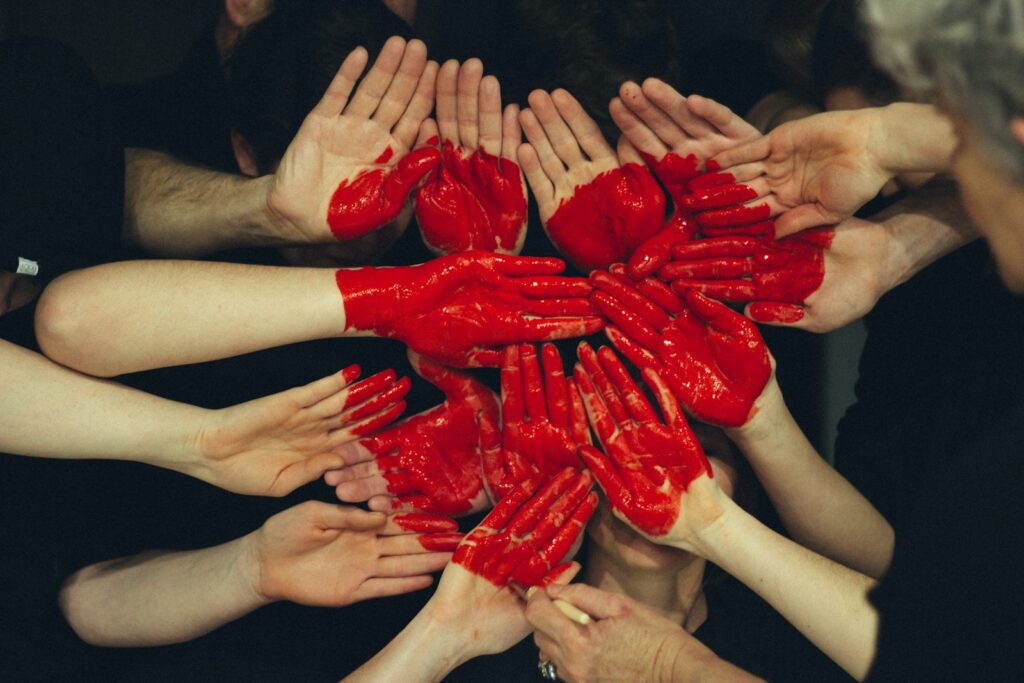We scroll past wildfires. We swipe through war headlines. We double-tap a petition and then move on. Why does it seem as though people are becoming less concerned? turned?
The truth is, it’s not that people don’t want to care—it’s that they’re exhausted. People are overstimulated emotionally, mentally, and socially. y, and socially. We live in an age of overexposure, constant crisis, and click-bait. What if we had the power to reverse this trend? power to reverse this trend?
Let’s unpack the psychology behind apathy and explore real, doable ways to reawaken empathy—one action at a time. People appear to lack empathy and compassion when faced with

and compassion when faced with adversity? We should investigate the underlying causes of pervasive apathy. Let’s investigate the underlying causes of societal indifference.
The Rise of Apathy

The Rise of Apathy in a Hyperconnected World
It’s undeniable that the world seems more resonant than ever. Climate change, economic instability, political unrest—it’s a lot to take in. Emotional burnout is not just likely but inevitable when faced with this constant barrage.
We’re not evil people. We’re overloaded.
Fact: According to Psychology Today, repeated exposure to distressing news can trigger emotional withdrawal, making us less likely to act.

The Bystander Effect—Someone Else Will Do It, Right?
Have you ever witnessed something wrong and thought, “Someone else will help”? That’s the bystander effect in action.
It’s a social psychology phenomenon that causes individuals to assume that others willSince the infamous Kitty Genovese case in 1964, when multiple people witnessed her murder but no one called for help, researchers have studied this phenomenon.murder but no one called for help.
This mindset breeds indifference. But it’s not irreversible.
Want to dive deeper? APA’s Guide on Bystander Intervention offers helpful insights.

Compassion Fatigue—When Caring Becomes Too Much
Nurses, carers, social workers—and even chronic news consumers—can suffer from compassion fatigue. It’s what happens when emotional exposure to trauma dulls your empathetic responses.
Over time, this condition leads to emotional exhaustion and disengagement. When everything feels like a crisis, nothing gets your attention.
Real talk: Feeling numb isn’t a character flaw. It’s a survival mechanism. But awareness is the first step to fighting it.

Social Media: Raising Awareness or Numbing Us All?
Social media can have both positive and negative effects. On one hand, it gives people a platform to speak up. However, it also presents a challenge. It fuels slacktivism—the illusion of action without actual effort.
Think: liking a post about clean water but not donating ₹100 to a clean water charity.
Additionally, we should acknowledge the fatigue caused by doomscrolling. A never-ending stream of tragedy can flatten our emotional bandwidth.
Excessive screen time, according to studies, is associated with decreased empathy and increased anxiety. (Source: NIH.gov)

What steps can we take to address this issue?
It’s not hopeless. You can care again—and make a difference—without burning out. Here’s how:
1. Actively Cultivate Empathy
Empathy isn’t passive—it’s a practice. Try:
- Listening deeply when someone shares
- Reading diverse voices and stories
- Engaging in random acts of kindness
- Taking breaks from media to feel more, not less
Need a read? Try “The War for Kindness” by Jamil Zaki—an incredible book on building empathy in a fractured world.
2. Take Small, Purposeful Action
Don’t underestimate the power of small acts:
- Donate to a verified charity
- Volunteer in your community
- Attend a local town hall
- Support sustainable businesses
Every action is a seed. You never know what ripple it might cause.
Try Ketto or GiveIndia to find Indian charities doing real work right now.
3. Reconnect with Real People
Isolation fuels apathy. But community fuels action. Reconnect with your neighbours, join local groups, and attend events—real ones, not virtual ones.
Building real-world ties reminds us we are part of something—and we can help shape it.
In Conclusion: Caring Isn’t Dead—It’s Just Tired
Let’s be honest—staying emotionally engaged in today’s world is hard. But that doesn’t mean we stop trying.

You don’t have to fix everything. Just care about something. Choose one issue. Learn about it. Act on it. Share it. Talk about it. That’s how you begin.
And the best part? Empathy spreads. If you care, someone else will too. And maybe—just maybe—that’s enough to change the world.
Related Reads from Our Blog:














